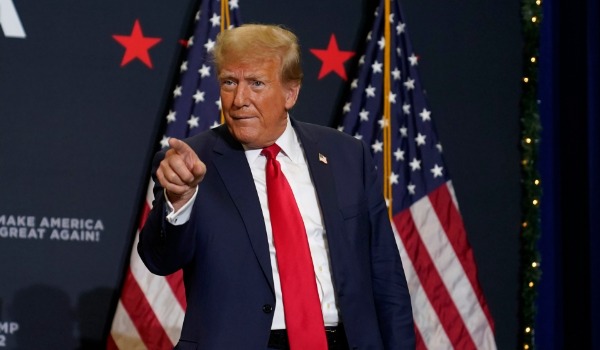Trump retained on 2024 primary ballot after Michigan supreme court rejected ‘insurrectionist ban’ case
The Michigan Supreme Court has rejected an attempt to remove former President Donald Trump from the 2024 primary ballot based on the US Constitution’s “insurrectionist ban.”
Wednesday’s decision contrasts with the recent ruling from the Colorado Supreme Court, which kicked Trump off its primary ballot because of his role in the January 6 Capitol riot. That decision has been paused pending an appeal.
Earlier, the Colorado Supreme Court on Tuesday, Dec. 19, declared Trump ineligible for the White House under the U.S. Constitution’s insurrection clause and removed him from the state’s presidential primary ballot, setting up a likely showdown in the nation’s highest court to decide whether the front-runner for the GOP nomination can remain in the race.
His decision was upheld by the Michigan Court of Appeals, which said: “At the moment, the only event about to occur is the presidential primary election. But as explained, whether Trump is disqualified is irrelevant to his placement on that particular ballot.”
The outcome has made the expected appeals to the US Supreme Court become even more critical, especially as the nation races toward the start of the 2024 primaries. Unlike in Colorado, the Michigan lawsuit never reached a trial and was dismissed early on in the process. An intermediate appeals court upheld the decision to toss the case on procedural grounds.
The Michigan Court of Claims judge who first got the case said state law doesn’t give election officials any leeway to police the eligibility of presidential primary candidates. He also said the case raised a political question that shouldn’t be decided in the courts.
Unlike in Colorado, the Michigan courts rejected the case wholly on procedural grounds. They never reached the questions of whether January 6 was an insurrection and whether Trump engaged in it.
Ratified after the Civil War, the 14th Amendment says officials who take an oath to support the Constitution are banned from future office if they “engaged in insurrection.” The provision was used to disqualify thousands of ex-Confederates. But it has only been applied twice since 1919, and the vague wording doesn’t mention the presidency.
The decision though generally expected, is a victory for the former president, though an effort to remove him could be renewed for the general election.




